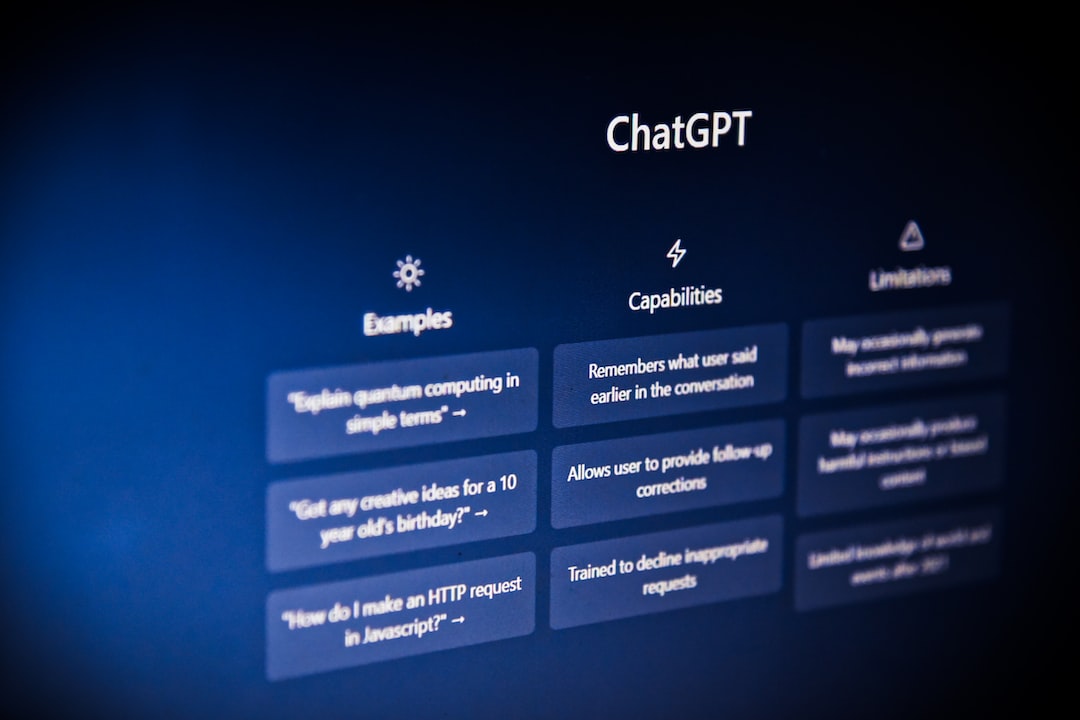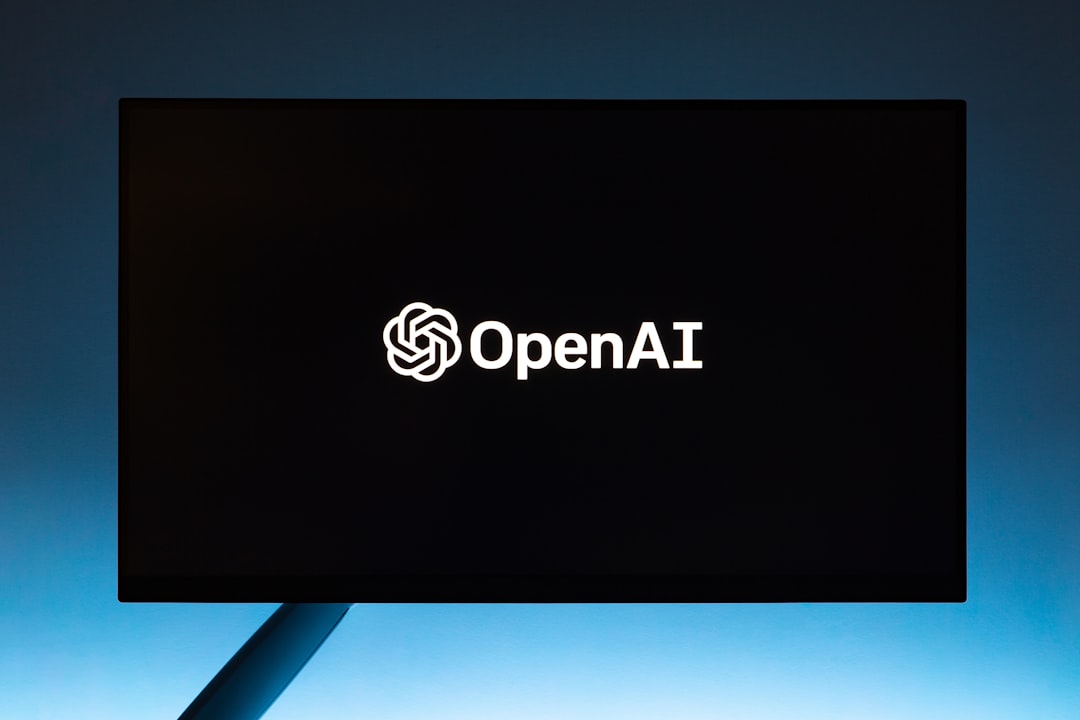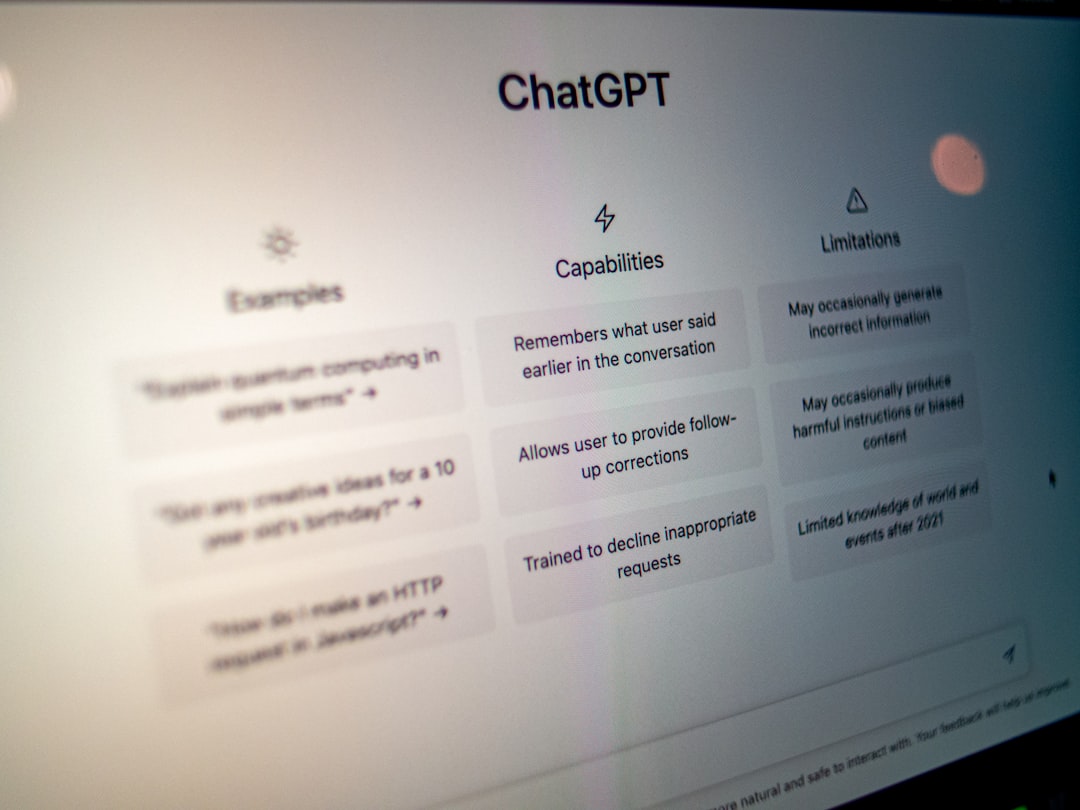In recent years, chatbots have become increasingly popular in the realm of customer service. These AI-powered bots can significantly improve interactions between customers and businesses, and offer several benefits to startups.
Chatbots can save businesses time and resources by automating routine customer service tasks such as answering FAQs, booking appointments, and providing product information. They are available 24/7, can handle an unlimited number of requests, and can provide personalized responses to customers.
Furthermore, chatbots enable businesses to scale their customer service operations quickly, as they can handle multiple interactions simultaneously. With chatbots, startups can reduce the number of human customer service representatives required, freeing up time to focus on other important areas of the business.
As chatbots become more sophisticated, they can also provide a more personalized customer experience. By leveraging artificial intelligence (AI), chatbots can recognize and respond to customers’ individual needs, preferences, and behavior. This can lead to increased customer satisfaction and loyalty.
In this post, we will explore the benefits of chatbots for startups, including how they can streamline customer service, the different chatbot platform options, and how to maximize their potential through the incorporation of AI and personalization. We will also discuss the importance of balancing chatbot interactions with human customer service representatives to ensure a positive customer experience. By the end of this post, you will have a clear idea of how chatbots can enhance your startup’s customer experience and contribute to your overall success.
Streamlining Customer Service: How Chatbots Can Benefit Your Startup
As a startup owner, you are well aware of the importance of providing exceptional customer service to your clients. However, offering high-quality, round-the-clock support can be difficult, especially when you are operating on a tight budget.
This is where chatbots come in. Chatbots are software programs that simulate conversation with humans, providing instant and consistent responses to customer queries. By leveraging the power of artificial intelligence and machine learning, chatbots offer a cost-effective and efficient way to handle customer service inquiries.
But how exactly can chatbots benefit your startup’s customer service?
Firstly, chatbots can enable your business to provide 24/7 support. Unlike human customer service representatives, chatbots do not need to take breaks or time off. They can work tirelessly around the clock, ensuring that your customers receive timely responses to their queries, regardless of the time of day.
Secondly, chatbots can help you save costs. Unlike human customer service reps, chatbots do not require salaries, healthcare benefits or other bonuses. Additionally, chatbots can handle multiple inquiries at the same time, thus enabling you to save on labor costs.
Lastly, chatbots can improve your customer service efficiency. By leveraging natural language processing and machine learning, chatbots can accurately identify customer issues and provide personalized solutions. This can lead to increased customer satisfaction, improved retention rates, and higher ROI.
In conclusion, chatbots can significantly improve your startup’s customer service. With the ability to provide 24/7 support, reduce labor costs, and offer personalized solutions, chatbots can streamline your customer service, boost efficiency, and enhance customer satisfaction. In the next section, we will explore the various chatbot options available for startups to help you choose the right platform for your business.
In the next section, we will explore the various chatbot options available for startups to help you choose the right platform for your business.
Chatbot Options for Startups: Choosing the Right Platform
As a startup, implementing chatbots into your customer service strategy can greatly benefit your business. However, with so many chatbot options available, it can be overwhelming to choose the right platform for your needs. Here are some factors to consider when selecting a chatbot platform for your startup:
1. Functionality: Determine what tasks you want your chatbot to perform. Are you looking for a chatbot to handle basic customer inquiries or to assist with scheduling appointments? Make sure the platform you choose has the functionality to support these tasks.
2. Integration: Consider the existing systems and tools you are currently using in your business. Will the chatbot platform integrate seamlessly with these tools? This can save you time and resources in the long run.
3. Customization: Your chatbot should reflect your brand and customer service style. Look for a platform that allows for customization of the chatbot’s personality, tone, and appearance.
4. Scalability: As your business grows, so will the demands of your customer service. Choose a chatbot platform that can accommodate future growth and increased demand.
5. Cost: Consider the cost of the chatbot platform, including any setup or integration fees, as well as ongoing maintenance costs.
Ultimately, the right chatbot platform for your startup will depend on your specific needs and goals. Take the time to research and evaluate your options, and consider consulting with a chatbot expert for guidance.
However, with so many chatbot options available, it can be overwhelming to choose the right platform for your needs.
Maximizing the Potential of Chatbots: Incorporating AI and Personalization
As chatbots become more common in the customer service landscape, it’s important to understand how they can be customized to provide a more personalized experience for your customers. By incorporating artificial intelligence (AI) into your chatbot, you can create a more sophisticated customer service tool.
One way to do this is by incorporating machine learning capabilities into your chatbot. This means that over time, the chatbot will learn from customer interactions and become better equipped to provide relevant assistance. For example, if a customer repeatedly asks about a certain product, the chatbot can learn to suggest that product to other potential customers who may also be interested.
Another approach to personalization is by utilizing data from your customers’ profiles. By integrating your chatbot with your customer relationship management (CRM) system, you can access valuable information such as their browsing history, purchase behavior, and preferences. This data can be used to personalize the chatbot’s responses and recommendations, making the experience more tailored and relevant for each customer.
Moreover, incorporating personalized chatbots into your customer service mix can help build stronger connections with your customers. By offering them a personalized interaction, you’ll be able to earn their trust and loyalty better.
However, it’s important to note that while personalization is important, it’s equally important to ensure that the chatbot puts customers’ privacy concerns first. With the use of the right data protection measures, you can safeguard your customer’s private data, in no small part by observing their data privacy preferences.
Overall, by incorporating AI and personalization into your chatbot, you can enhance your customers’ experience and build deeper connections with them.
This means that over time, the chatbot will learn from customer interactions and become better equipped to provide relevant assistance.
The Need for Human Interaction: Balancing Chatbots and Human Customer Service Representatives
As much as chatbots have revolutionized the way businesses handle customer service inquiries and complaints, there is still a critical need for human interaction. Customers often prefer speaking to human agents, especially when it’s a complicated issue that they need urgent help with, and chatbots don’t present the most empathetic solutions.
While chatbots do an excellent job of handling routine tasks such as providing information and guiding customers, they lack the personal touch that human representatives provide. A customer who is frustrated or dissatisfied with their experience may want to vent, air out their grievances or feel heard, something that chatbots can’t quite offer.
Therefore, finding a balance between chatbots and human customer service representatives is essential. Companies should ensure that chatbots are only used for tasks that they excel at, while humans tackle the more personalized and complicated issues.
The key to successfully balancing chatbots and human interaction is training the human representatives to integrate their skills with technology. Companies should invest in training their customer service representatives to work alongside chatbots, which can help them provide more comprehensive support. For instance, representatives can use chatbots to get relevant information or to automate routine tasks and focus their time and energy on customer interaction.
In conclusion, while chatbots are a game-changer in streamlining customer service, they cannot replace human interaction entirely. It’s crucial for companies to find the right balance to enhance the customer experience and provide personalized solutions. By integrating human representatives and chatbots, companies are more likely to handle inquiries and complaints more efficiently and improve their customer satisfaction rates.
The Need for Human Interaction: Balancing Chatbots and Human Customer Service Representatives
As much as chatbots have revolutionized the way businesses handle customer service inquiries and complaints, there is still a critical need for human interaction.
Conclusion: Enhancing Your Startup’s Customer Experience with Chatbots
Chatbots are the future of customer service and startups must take advantage of this revolutionary technology to enhance their customers’ experience. A chatbot can streamline customer service by providing 24/7 support, quick response times, and personalized solutions.
Choosing the right chatbot platform for your startup is crucial, and decision makers must consider factors such as the bot’s features, the cost, and its integration with other technologies. Incorporating AI and personalization into your chatbot can maximize its potential in solving customers’ problems, just like a human customer service representative would.
However, startups must keep in mind that chatbots are not the answer to all customer service problems. The human touch is still very much needed in certain situations. Balancing chatbots and human customer service representatives can help provide the best possible customer experience.
Chatbots are gaining popularity and have the potential to revolutionize customer service industry. They offer several benefits such as 24/7 availability, quick response times and personalized solutions.
In conclusion, Chatbots can help your startup stand out by making your services and products more accessible, cost-effective, and personalized. It’s time to make them part of your organization and watch your customer experience grow.
It’s time to make them part of your organization and watch your customer experience grow.
The Importance of Regularly Evaluating and Updating Your Chatbot Strategy
Once you’ve successfully implemented a chatbot into your startup’s customer service strategy, the work isn’t done. In fact, it’s just beginning. Your chatbot will need to be regularly evaluated and updated to ensure it’s continuing to meet the needs of your customers and your business.
One important aspect of evaluation is determining if your chatbot is helping to meet your business goals. Are customers finding the answers they need quickly and easily? Has your chatbot reduced the workload on your customer service team? Are you seeing an increase in customer satisfaction? These are all important metrics to track and evaluate periodically.
It’s also crucial to ensure your chatbot is keeping up with advances in AI technology. As the technology becomes more advanced, customers will expect their interactions with chatbots to be even more personalized and human-like. Your chatbot may need to be updated to incorporate these advancements in order to keep up with customer expectations.
Another consideration is to periodically review and update the content and responses provided by your chatbot. As your business evolves, your customer’s needs may also change. Regularly reviewing and updating your chatbot’s responses can help ensure they’re still relevant and helpful to your customers.
Finally, it’s important to consider the feedback you receive from customers about your chatbot. Are there areas where customers are consistently having trouble getting the answers they need? If so, it may be time to update your chatbot’s responses or take a closer look at what’s causing the issue.
In summary, regularly evaluating and updating your chatbot strategy is key to ensuring your startup is meeting the evolving needs of your customers. Keeping your chatbot up to date with the latest AI technology and regularly reviewing and updating its responses and content can help ensure it remains an effective tool for streamlining customer service and enhancing the overall customer experience.





